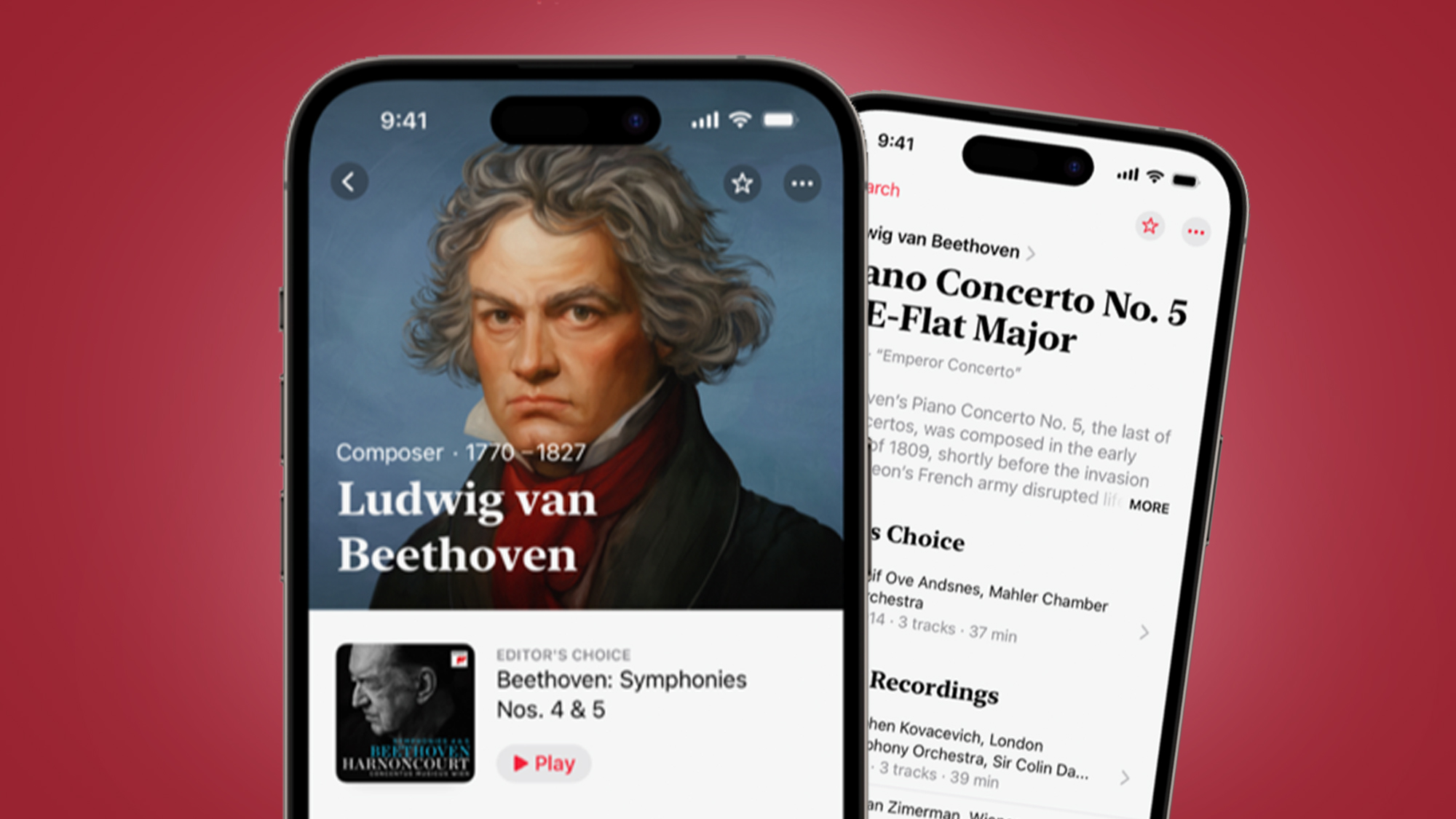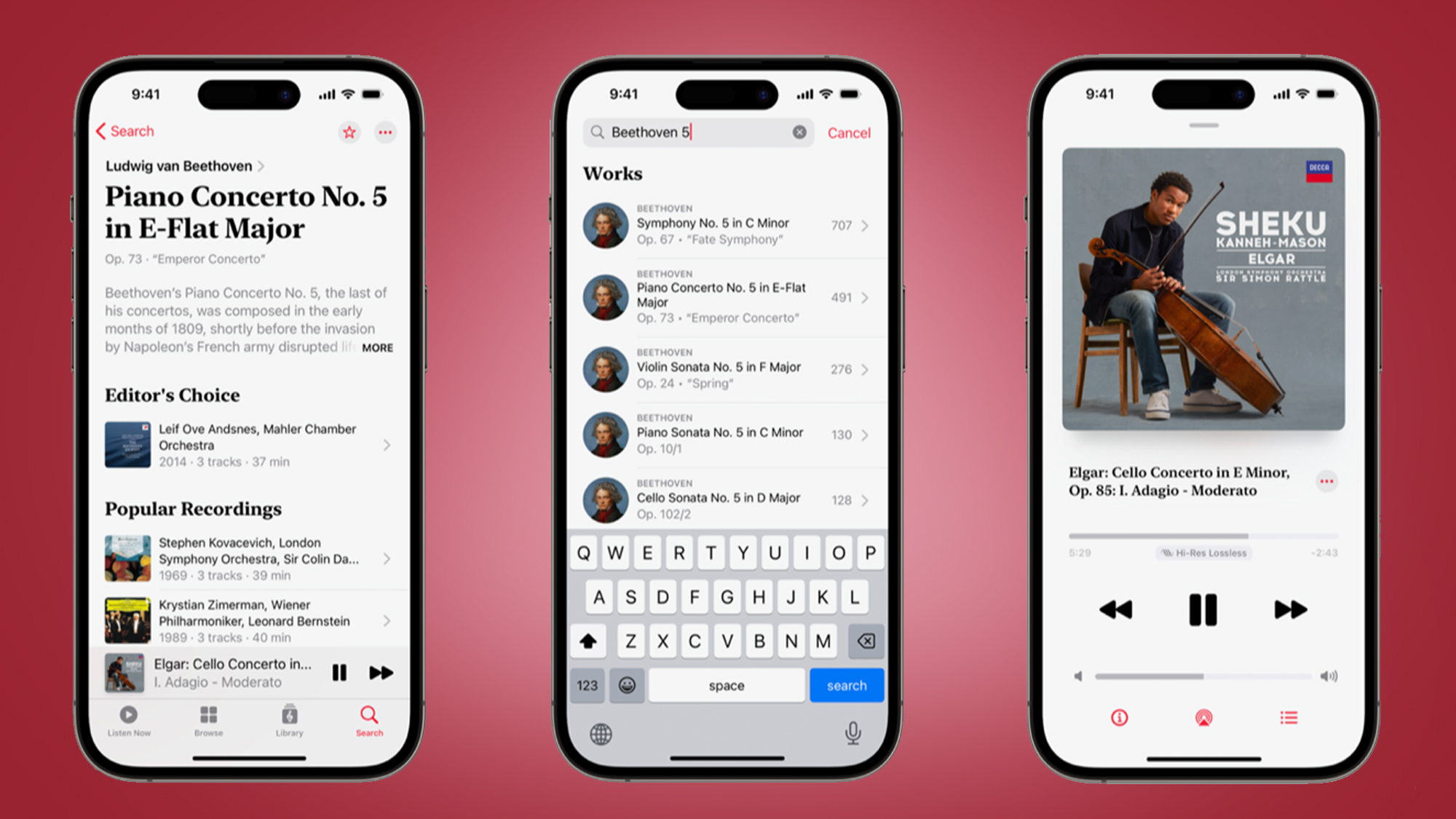Apple Music Classical gets a launch date – and it should be a spatial audio treat
Like classical music? Add this to your Chopin list

The long-rumored Apple Music Classical app has finally been given an official launch date – with the new app promising to offer the world's largest classical music catalog.
Apple Music Classical will launch on March 28 and will surprisingly be available for Apple Music subscribers on both iOS and Android, with the latter apparently "coming soon". Naturally, iPhone owners will get to give it a listen first, as long you're running iOS 15.4 or later.
Apple's new app, which you can 'pre-order' now on the App Store, is separate from its existing Apple Music app, but still requires an Apple Music subscription. Once you've pre-ordered, the Apple Music Classical will apparently automatically download at launch.
For fans of symphonies and orchestral music, it promises to be a real treat with over five million tracks and, according to Apple, "thousands of exclusive albums". Even better, if you have a solid set of speakers or a pair of the best headphones, Apple is promising thousands of recordings in spatial audio and 192 kHz/24-bit Hi-Res Lossless sound quality.
Apple has worked pretty hard on the user interface too, offering the ability to search music by composer, work, conductor, or, for classical music super-nerds, even catalog number. That's all likely been helped by Apple's acquisition of Primephonic, a classical music streaming service it bought in 2021. The only downside is that Apple Music Classical will lack the option of offline listening, at least to start with.
Still, overall Apple's classical music app is shaping up to be a pretty big bonus extra for Apple Music subscribers and somewhat deflates the hype Spotify has been building around its new home page redesign.
Analysis: Why a separate Apple Music Classical app?

Apple already has the Apple Music app, which contains a decent selection of classical music – so why has it released a separate app for classical music fans?
Get daily insight, inspiration and deals in your inbox
Sign up for breaking news, reviews, opinion, top tech deals, and more.
The clue is in the painstaking organization of Apple's new classical app. Classical music is very different from other forms of music because each work has often been recorded by a number of different orchestras – and even more confusingly, the works of many composers have been cataloged using different systems, including the opus numbering system.
That system is far from perfect, as in the classical era many publishers would file a group of works under a single number – or in the case of French composer Massenet, would use 'Opus 12B' rather than 'Opus 13' for superstitious reasons. A lot of 20th-century composers have also simply ignored the system completely, while other composers (like Mozart) use a different cataloging system altogether.
Apple Music Classical's powerful search functions – which let you search by composer, work, conductor, or catalog number – should make it far easier to find the piece you're looking for, and help explain why Apple has separated it from its main Music app.
While it is possible to listen to classical music on the best music streaming services (including Apple Music, with spatial audio no less), the new Apple Music Classical app promises to take the experience to the next level. We'll certainly be taking it for a spin on March 28, if we're feeling Rachmaninoff.

Mark is TechRadar's Senior news editor. Having worked in tech journalism for a ludicrous 17 years, Mark is now attempting to break the world record for the number of camera bags hoarded by one person. He was previously Cameras Editor at both TechRadar and Trusted Reviews, Acting editor on Stuff.tv, as well as Features editor and Reviews editor on Stuff magazine. As a freelancer, he's contributed to titles including The Sunday Times, FourFourTwo and Arena. And in a former life, he also won The Daily Telegraph's Young Sportswriter of the Year. But that was before he discovered the strange joys of getting up at 4am for a photo shoot in London's Square Mile.